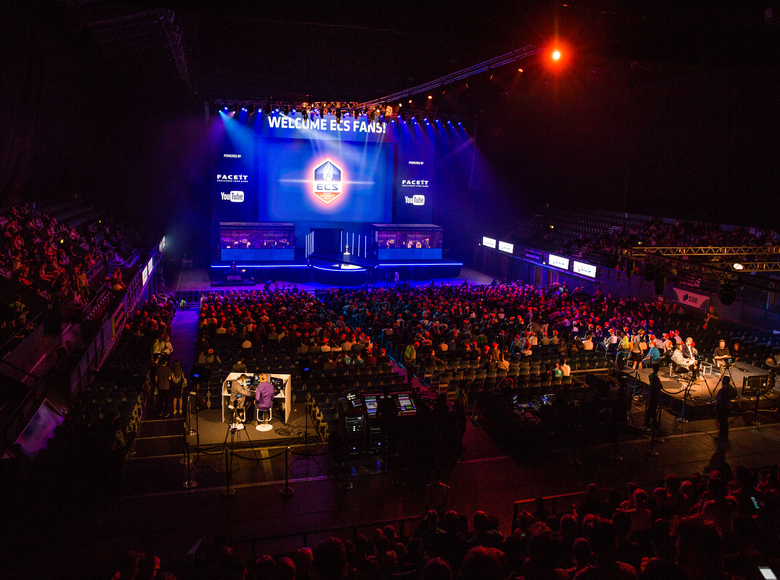Esports will benefit hugely from 5G technology, according to a survey of mobile operators from across Europe and the rest of the world.
Software and services provider Amdocs surveyed operators about their ambitions to offer 5G services at major sports and esports events.
Every single European operator that took part in the study said they plan to support esports in the 5G era, either as technology partners to esports event organisers (88%), broadcasters of the action (47%), or through esports team ownership (12%). Comparatively, 41% of operators want to own a sports team in the 5G era.
Encouragingly, 94% of European mobile operators are planning to trial 5G within sports and esports venues by the end of 2020.
It’s expected that most of us will experience 5G for the first time in summer 2020, with 88% of European operators targeting the Euro 2020 football tournament to launch 5G services.
“In the future, 5G will be able to support remote gaming from almost any location. So, it could be possible for somebody to participate in a tournament from a café or park.”
Gary Miles, chief marketing officer at Amdocs, told Esports News UK: “Similar to mainstream sports events, esports tournaments provide an ideal showcase for the improvements 5G networks deliver.
“The esports tournaments themselves require very high speed, reliable and low latency networks, which can be enabled by 5G. Next generation networks can eliminate lag on games played over the internet, enabling thousands of players to compete, whilst guaranteeing a high quality and reliable experience.
“The 2018 League of Legends finals were viewed by 46 million concurrent viewers worldwide on average, with a peak of more than 200 million viewers. This presents the opportunity to deliver the same, high-quality, feature-rich broadcast experience for esports that operators plan to deliver for normal sports events using 5G.
“In the future, 5G will also be able to support remote gaming from almost any location. So, it could be possible for somebody to participate in a tournament from a café or park using a VR headset or their mobile phone.”
Consumers wanting to take advantage of 5G will of course need devices that support 5G. To ensure widespread adoption of this new network technology, 41% of European operators said they were prepared to subsidize 5G-enabled smartphones and 35% said they would subsidize 5G-enabled tablets and AR headsets.
“5G promises speeds up to tens of times faster and lower latency than 4G.”
Dom Tait, principal analyst at Ovum, added: “Any issues with latency could have disastrous effects on an esports event. A Fortnite tournament in July 2018 was cancelled midway through due to unacceptable lag, an embarrassing moment for the organizer.
“Value can be added by taking connectivity issues off their hands, providing a professional broadcasting option, cross-promoting through other channels to customers, providing connected retail options so fans can be served from their seats, or even taking over organisation of the event itself.
“It’s comfortably possible for operators to find mutually beneficial aims with games developers.”
The study, carried out by analyst firm Ovum and commissioned by Amdocs, surveyed C-level executives and senior decision makers at 60 of the world’s 100 largest communications and media companies by revenue, who are spearheading industry 5G trials and rollouts.
The survey also found that 76% of European mobile operators plan to use augmented reality (AR) supported by 5G, to offer richer viewing experiences to fans, both at sports stadiums and at home.
5G promises speeds up to tens of times faster and lower latency than 4G. It will also make it easier for audiences to watch instant replays, 360-degree streams or look up player stats via AR and VR (virtual reality) technology.
Related article: Consortium led by ESL UK gains £4m funding to revolutionise how we watch esports, using 8K, VR, AR and AI tech

Dom is an award-winning writer and finalist of the Esports Journalist of the Year 2023 award. He has almost two decades of experience in journalism, and left Esports News UK in June 2025.
As a long-time gamer having first picked up the NES controller in the late ’80s, he has written for a range of publications including GamesTM, Nintendo Official Magazine, industry publication MCV and others. He also previously worked as head of content for the British Esports Federation.


